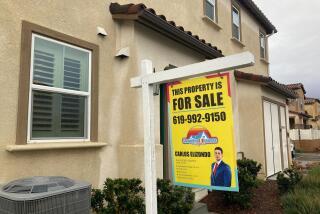Prop. 13 Friends Must Refurbish for Fairness
- Share via
That Proposition 13 created two classes of owners, differentiated by the age of their “base-year” values, doesn’t necessarily mean that it is unfair. All owners, without regard for when they bought their property, are probably paying less in taxes than they would have without Proposition 13. The present difference is more a function of choice than any quirks in the law.
As an example, if a property owner with a 1975 base value considers the possibility of selling his property and buying another, it is incumbent that he address the property tax effects as he would other elements of the change such as the differences in the mortgage payments, location, size of the improvements, etc. If he elects to make the change with the knowledge that his taxes wil be higher, then it should be assumed that he has adjusted his budget to reflect the tax premium.
This same principle applies to first-time buyers, a group Mr. Pope claims to be worried about. Therefore, if an army of young family purchasers are finding that prices of homes are just beyond their ability to afford because of high taxes, then sellers will be expected to adjust their prices to compensate the buyer for the excess tax premium that will have to be endured for the intended duration of ownership.
It is my suggestion to leave Proposition 13 alone. As it now stands, when people buy property, the taxes are known “up front” and they won’t make the move if they can’t afford it. If they can afford it, government revenues increase. It is difficult for this observer to find unfairness in such a system.
MICHAEL J. SCHAAF
Beverly Hlls
Schaaf is president of Schaaf & Co., valuation consultants.
More to Read
Inside the business of entertainment
The Wide Shot brings you news, analysis and insights on everything from streaming wars to production — and what it all means for the future.
You may occasionally receive promotional content from the Los Angeles Times.









